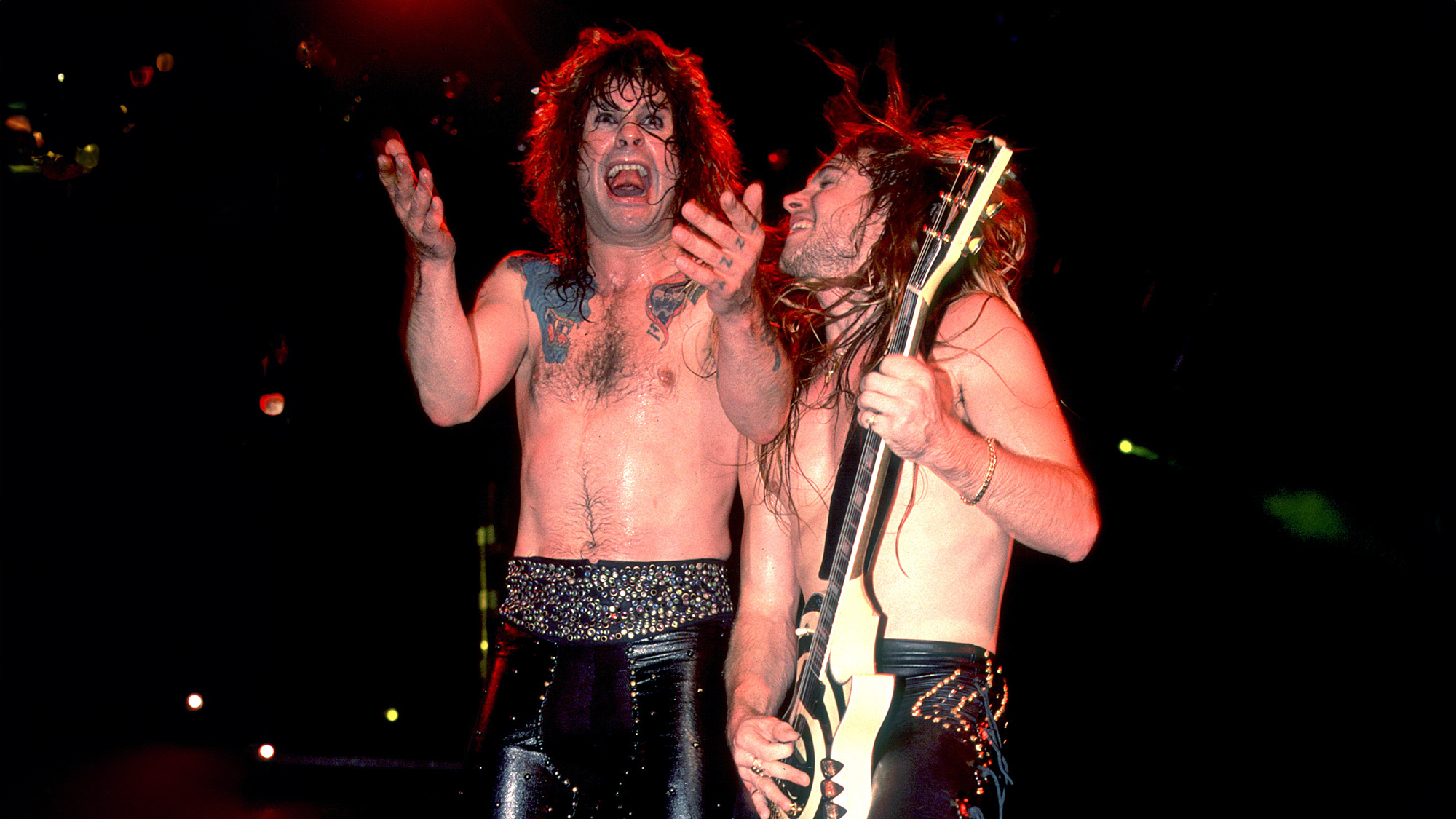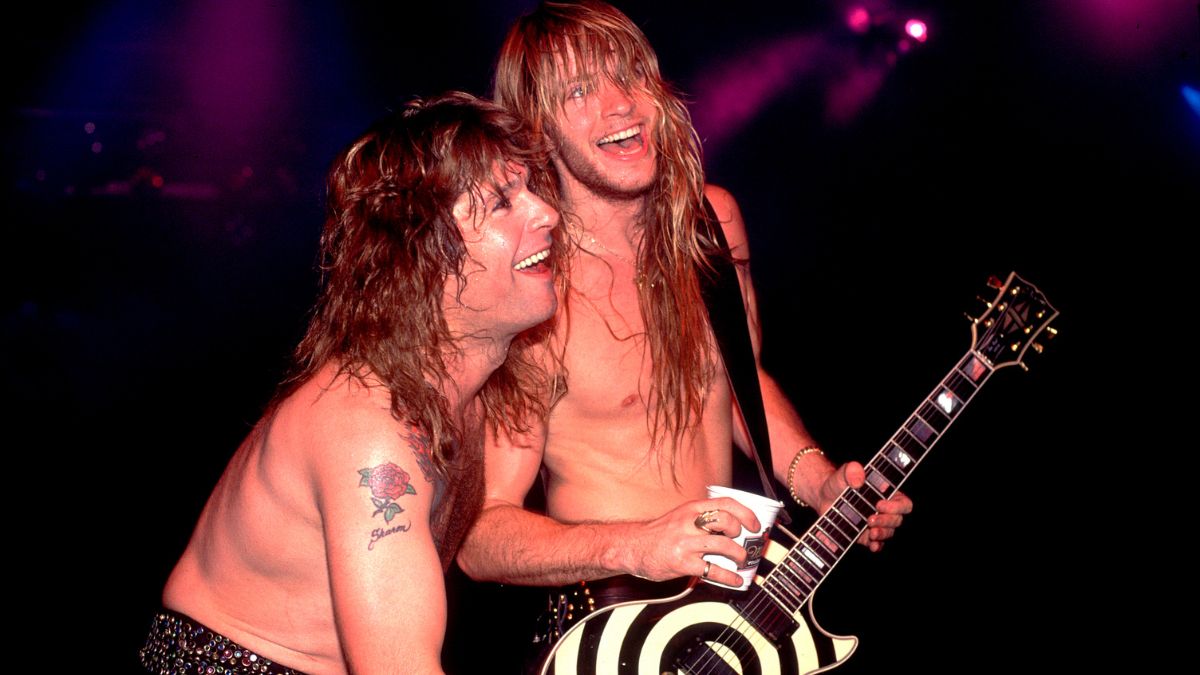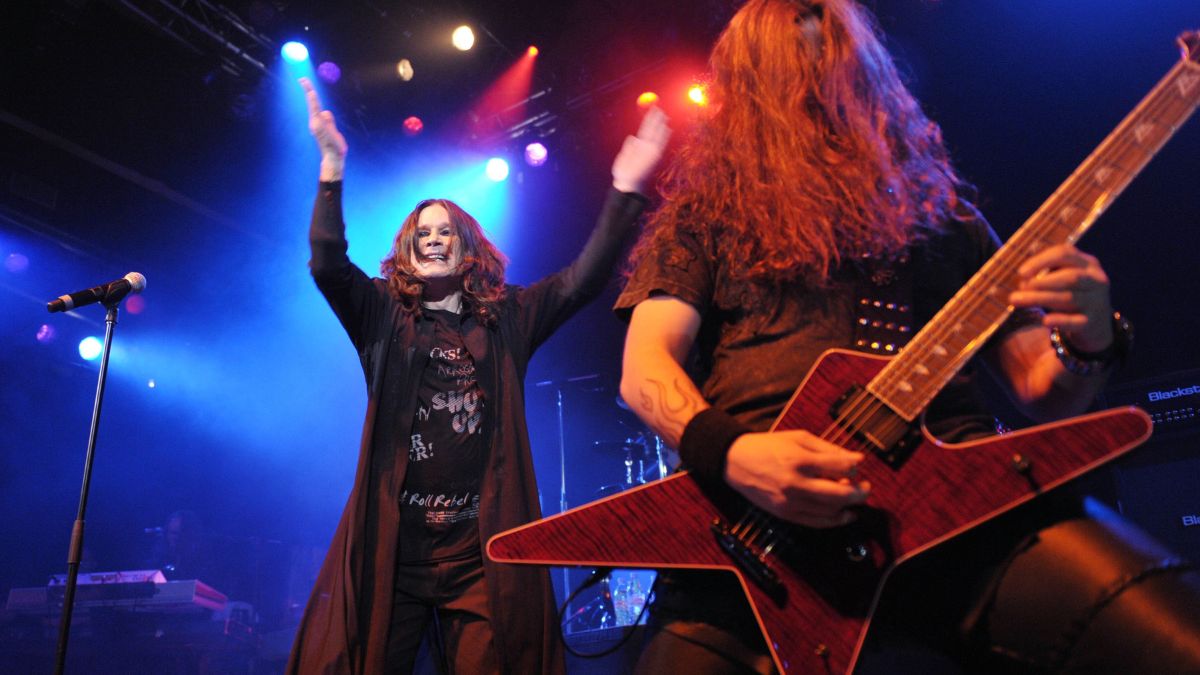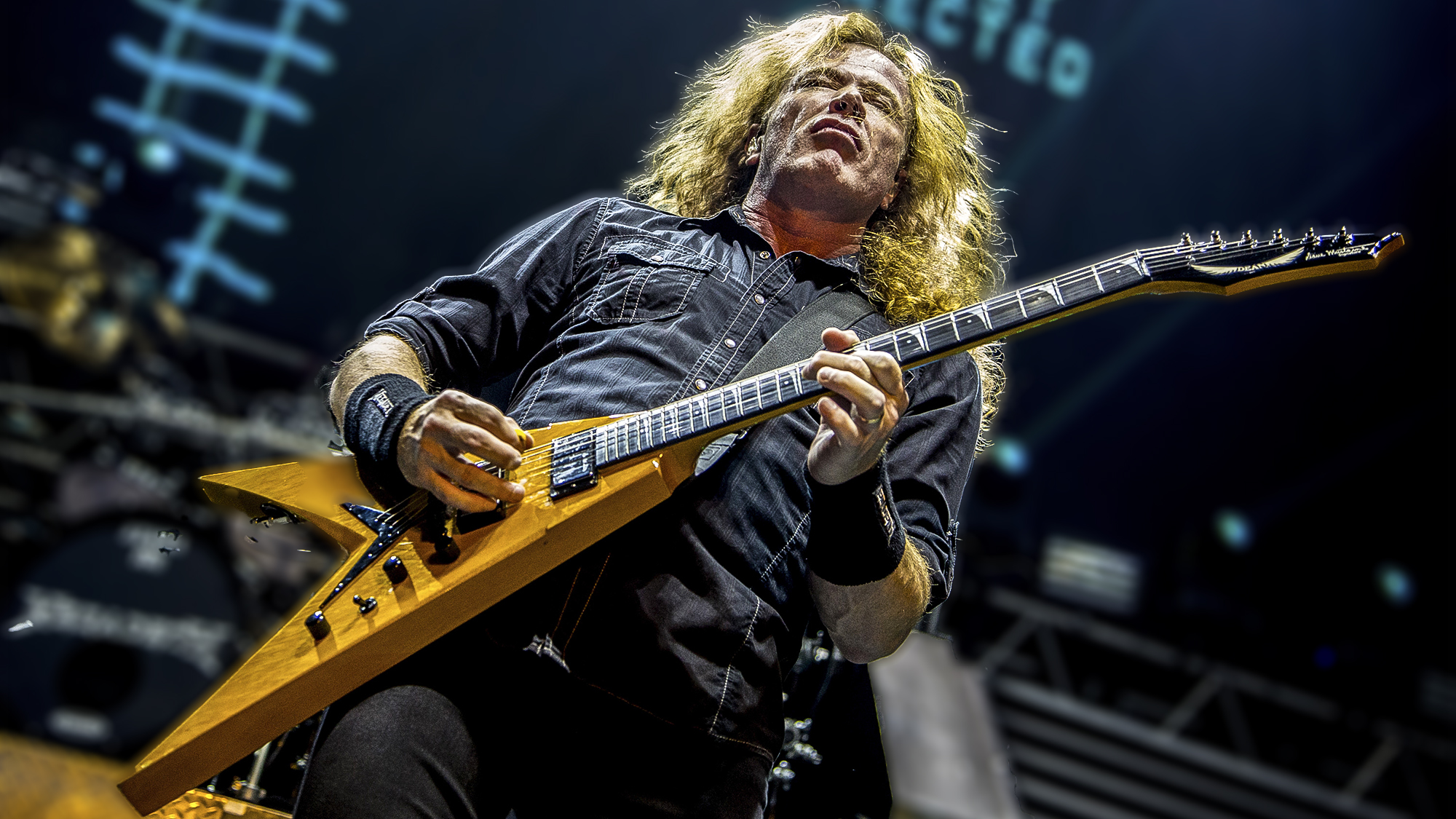“If you're into heavy metal, that's your father!” Zakk Wylde and Gus G. on Ozzy Osbourne, the fatherly band leader who turned unknown guitar players into world-class shredders
Both shredders were thrust into the limelight when they became the Prince of Darkness’s right-hand man, and he was there to guide them through the weight of the gig

Tony Iommi perhaps said it best when he said, “There won’t ever be another like Ozzy Osbourne.” But beyond his songs — and the wild tales of bat decapitation and ant snorting — was a father figure who got the best out of his guitarists.
The Prince of Darkness may have told Guitar Player that the late Randy Rhoads “was just a fucking born star,” but the former Quiet Riot guitarist entered uncharted territory when he was tasked with helping to launch Ozzy's post-Sabbath career. The eyes of the metal world were on them, in particular the relatively inexperienced Rhoads. Although he's had many great guitar players in his wake, Ozzy often pivoted toward lesser-known players and put his faith in the underdog.
In doing so, he understood that the crown often weighs heavily. To the guitarists whose lives he changed by employing them, he was more than a boss; he was a dad. Rhoads, Wylde and, later on, Gus G., weren't big names when they joined the band. Ozzy's job was to guide them through the chaos and help them shine.
“I grew up on Ozzy and Sabbath. I was starstruck as anybody would be,” Gus G., who replaced Zakk Wylde in 2009, tells That Metal Interview Podcast about getting the gig. “If you're into heavy metal, that's your father! That's the father of heavy metal. It was a crazy moment.”
Unlike Rhoads, Gus, who'd made his name in power-metal band Firewind, entered the fray as the latest in a long, celebrated line of guitarists, including Jake E. Lee, Wylde and Jerry Cantrell. Not to mention that Alex Skolnick had lasted just one gig before falling foul of Sharon's unforgiving management. Osbourne wasn't going to let the prestige of the job drown his new riffsmith.
“He was like, ‘Hey man, take it easy. Let's just jam and don't worry if you play a few notes wrong — it's rock and roll, that's what happens,’” Gus G. relays. “‘Just play with all your heart. Let's do it.’
“He was just a very nice and very sweet guy, very warm-hearted. He broke the ice right away. I was nervous until I met him; once we started jamming, it felt right.”
All the latest guitar news, interviews, lessons, reviews, deals and more, direct to your inbox!
The two-time Rock and Roll Hall of Famer cared deeply about his bandmates. When he visited Zakk Wylde's newly bought North Hollywood apartment in the early '90s to work on what would become "Mama I'm Coming Home", Ozzy was struck by the state of the property.

“I drove Ozzy over to my apartment,” Wylde tells Guitar Player. “The area didn’t look great. The grass was 10 feet high, the shingles were hanging off, the paint had flaked off, there was a drug rehab place nearby, you know? The whole thing looked like a drug slum shithole.
“Ozzy took a look around and said, ‘You’re joking, aren’t you?’ I said, ‘It’s a lot nicer on the inside.’ Ozzy just asked, ‘Sharon is paying you, isn’t she?’”
The story may draw a smile from the reader, but behind Ozzy’s ever-sharp and ever-dry humor was genuine care and concern for the guitarist. There’s a reason he calls Ozzy “dad.”
Wylde says he crapped his pants when he beat the likes of Chris Impellitteri and Adrian Vandenberg in becoming Ozzy’s third full-time guitarist.

He adds that there were some insincere auditionees too, who were there for the paycheck, not the love of the job. Ozzy, then, likely saw Wylde's enthusiasm for the job and his deep-rooted respect for those who came before him, and also through the green-eyed eyed among the bunch. He might even have seen a little of himself — a working-class man from Aston, Birmingham — in the guitarist's face.
His advice to Wylde upon joining? “Just play with your heart — that's all you gotta do — and you'll be fine...and by the way, change your pants!'”
Ozzy was a leader who knew how to get the best out of his bandmates. Even when the mountain seemed steep.
However, with his paternal instincts came the harsher side; grief. When Rhoads’ life was suddenly taken in 1982, at the young age of 25, Ozzy was distraught. He hit the bottle.
Rudy Sarzo, who was the band's bass player at the time, has since said that their decision to continue touring within two weeks of the tragedy was made out of necessity.
“Here was the strategy,” he said. “Keep Ozzy moving. You cancel the tour, Ozzy goes home, goes in the hole, dies.”
There was guilt mixed with his grief. He was the reason Rhoads wasn't back home, teaching guitar out of his mum's school.
“Ozzy still to this day feels guilty,” Sharon conceded in 2020. “‘If only I was awake, I would never have let him get on that plane.’ And, you know, it’s something that Ozzy lives with.”
“The day that Randy Rhoads died,” Ozzy once said, was the day a part of me died.”
The pair will be reunited now — a small silver lining to Ozzy's death, coming just weeks after Back to the Beginning. But as the music world mourns the loss of one of its greatest figures, his caring and nurturing side should be remembered just as much as what he did to the face of heavy music over a tireless, eventful, six-decade career.
A freelance writer with a penchant for music that gets weird, Phil is a regular contributor to Prog, Guitar World, and Total Guitar magazines and is especially keen on shining a light on unknown artists. Outside of the journalism realm, you can find him writing angular riffs in progressive metal band, Prognosis, in which he slings an 8-string Strandberg Boden Original, churning that low string through a variety of tunings. He's also a published author and is currently penning his debut novel which chucks fantasy, mythology and humanity into a great big melting pot.


